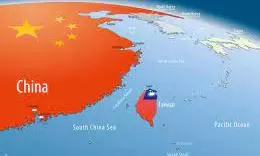
China signals continued pressure on Taiwan despite election outcome
text_fieldsBeijing: In the aftermath of Taiwan's recent election, where voters elected independence-leaning Lai Ching-te for a third consecutive term, China's persistent pressure on the island nation appears undeterred.
Despite failed attempts of intimidation through warplanes, balloons, and aggressive rhetoric, President Xi Jinping is expected to adhere to his strategy of maximum pressure, reported AFP.
China, viewing Taiwan as a renegade province since its separation at the end of a civil war in 1949, maintains the goal of eventual reunification, even if force becomes necessary. The Democratic Progressive Party's victory, led by Lai Ching-te, is strongly opposed by Beijing.
Leading up to the election, China urged voters to reject Lai's path, warning of potential war if the DPP retained power. China continued its military presence around Taiwan and conducted large-scale war games in the vicinity over the past 18 months.
Following Lai's win, Taiwan responded by advising China to "face reality."
However, analysts anticipate an escalation of China's intimidation tactics. Lyle Morris from the Asia Society Policy Institute predicted that Beijing will intensify tension and coercion against Taipei, recognising a diminishing prospect for political consensus on unification.
China's official response after the election indicated no room for compromise, stating, "Whatever changes take place in Taiwan, the basic fact that there is only one China in the world and Taiwan is part of China will not change."
Some Chinese media commentary was more strident, emphasising the necessity of strength and the option to use force for peaceful unification. Despite these pressures, Taiwan's voters, in electing Lai, may have demonstrated a preference for maintaining the status quo rather than pursuing full independence.
China's previous attempts to influence Taiwan's elections in 1996, when missile tests were conducted, did not alter the voters' inclination toward independence-leaning candidates. While China's threats might have influenced voters to support "separatist" forces, it remains uncertain whether Beijing will initiate conflict to change the existing status quo.
CIA director William Burns has mentioned a potential invasion by China by 2027, a timeline that, according to Chinese politics expert Willy Lam, remains unchanged. The key factor influencing this decision is the perceived gap between China's forces and those of the U.S. and its Asian allies.
As tensions persist, residents on Pingtan Island, China's closest point to Taiwan, express optimism about the prospect of unification. Some say the reunification of Hong Kong and Macau is a reason to pursue Taiwan to become part of China in this generation itself.























